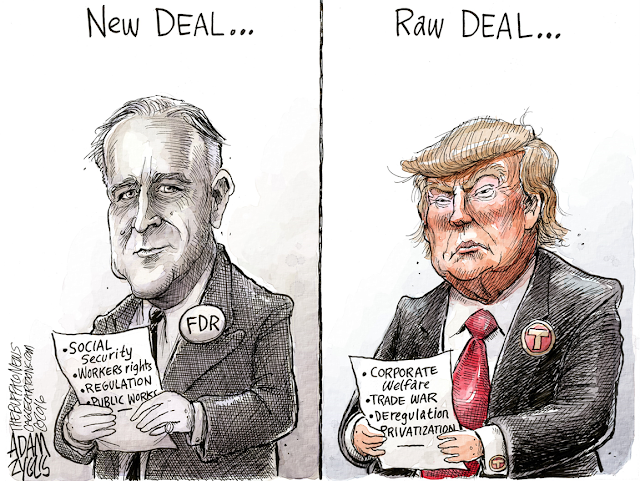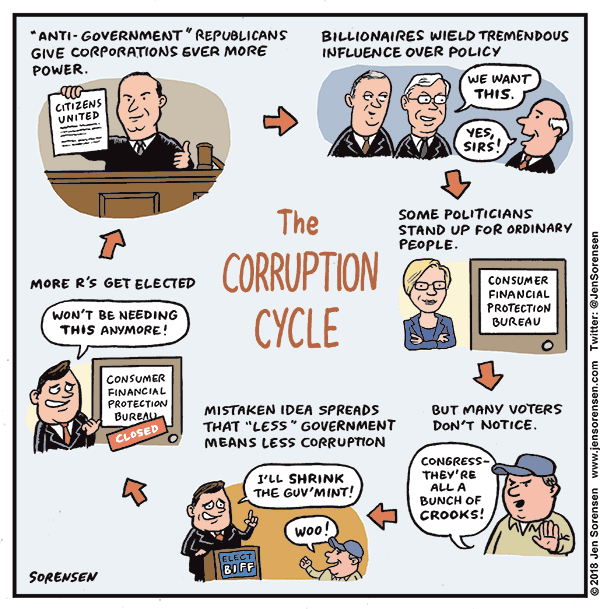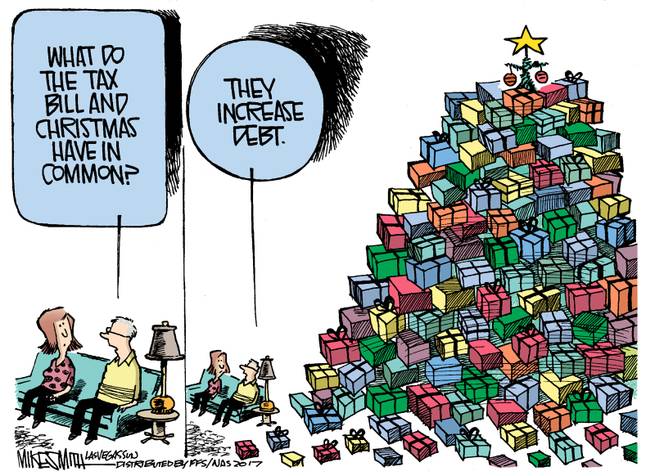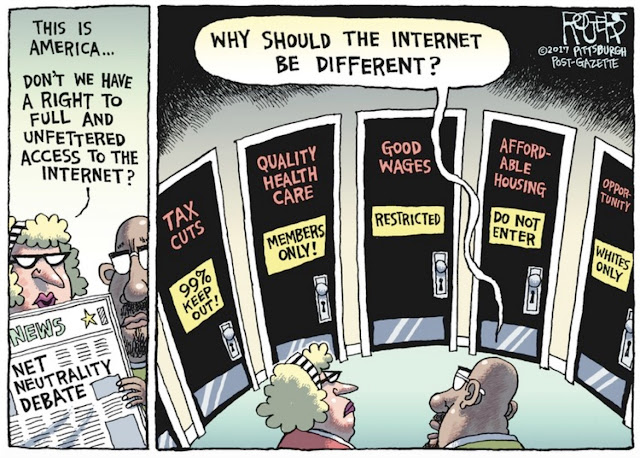Political Economy category archive
Consumer Predation Agency 0
The Trumpling continues.
Watchdog groups are up in arms because, under Mulvaney, the CFPB has put on hold a rule that would restrict payday lenders and their high-interest-rate loans. The agency has also dropped a lawsuit against online lenders charging 900 percent interest rates. Critics say these moves are payback for campaign contributions to Mulvaney when he was a congressman representing South Carolina.
Much more at the link.
When Government Refuses to Govern, One More Time 0
The Republican Party controls the Congress and the White House (though, in the case of the latter, “controls” may not be the correct term). They got no one else to blame, but, natch, they will certainly blame away, blame away, blame away, Dixiel–sorry, got distracted. I wonder whatever it may be about Republicans that led me to free-associate to that tune?

Via.
The Five Legs of a Trumpled Stool 0
Bobby Azarian analyzes the news and suggests five psychological traits that characterize Donald Trump’s core supporters.
Note that these are technical terms and may not necessarily mean what they would in normal parlance. For example, “relative deprivation” does not mean that some is deprived; rather, it means that he or she thinks he or she is deprived relative to some other group (say, for example, black folks or millennials, whatever they are).
Here’s the thumbnail; follow the link for a discussion of each one.
- 1. Authoritarian Personality Syndrome
- 2. Social dominance orientation
- 3. Prejudice
- 4. Intergroup contact
- 5. Relative deprivation
Economic Indicators, It’s Bubblelicious Dept. 0
House-flipping is on the rise again.
Social Engineering 0
At The Nation, Edward Burmila looks at the social assumptions underlaying the Republican tax deform bill. A snippet:
I think not having the estate tax recognizes the people that are investing, as opposed to those that are just spending every darn penny they have, whether it’s on booze or women or movies.
Upon first reading, I knew I had seen this comment somewhere before. It turns out Grassley was channeling the British economist Thomas Malthus in his seminal Essay on the Principle of Population (1798):
The labouring poor, to use a vulgar expression, seem always to live from hand to mouth. Their present wants employ their whole attention, and they seldom think of the future. Even when they have an opportunity of saving they seldom exercise it, but all that is beyond their present necessities goes, generally speaking, to the ale house.
Malthus spoke to a common mindset among the upper classes that the poor were beyond help. Poverty, it was widely believed, was a sign of a weakness, . . .
Via Gin and Tacos.
Tit for Tat 0
Jay Bookman offers a theory as to why the Republican Party went all in for the tax deform bill. A snippet:
In related news, Robert Reich runs the numbers.
“Stand and Deliver” 0
Josh Marshall tries to make sense of the Republican Party’s rush to rape the middle and lower classes with its tax bill. A snippet (emphasis added):
The Republican tax deform bill is to the poor and middle class what Harvey Weinstein was to women.
















